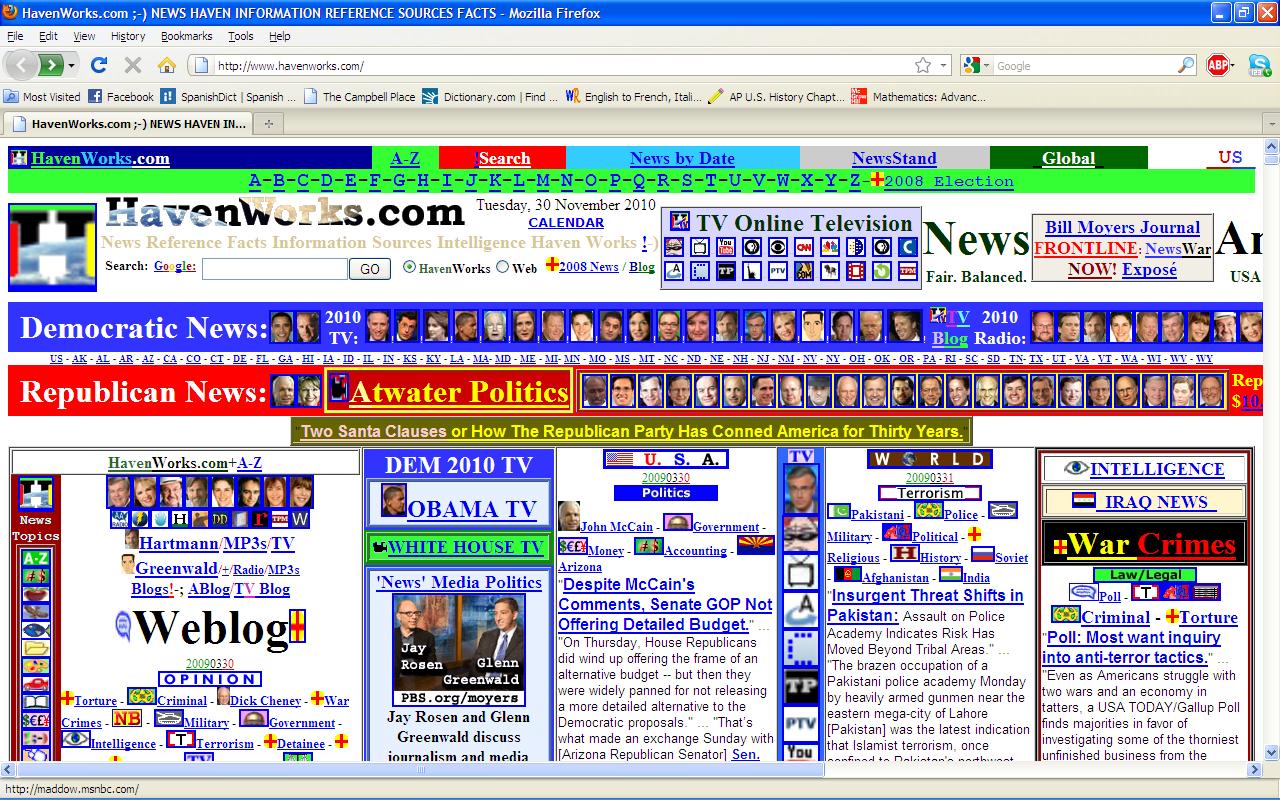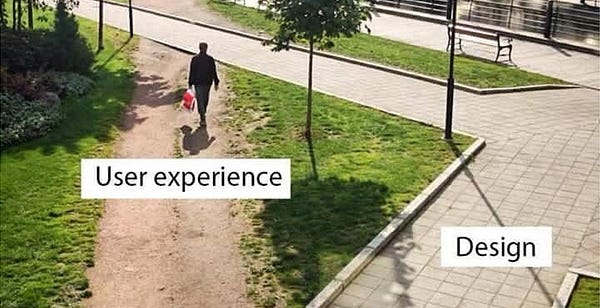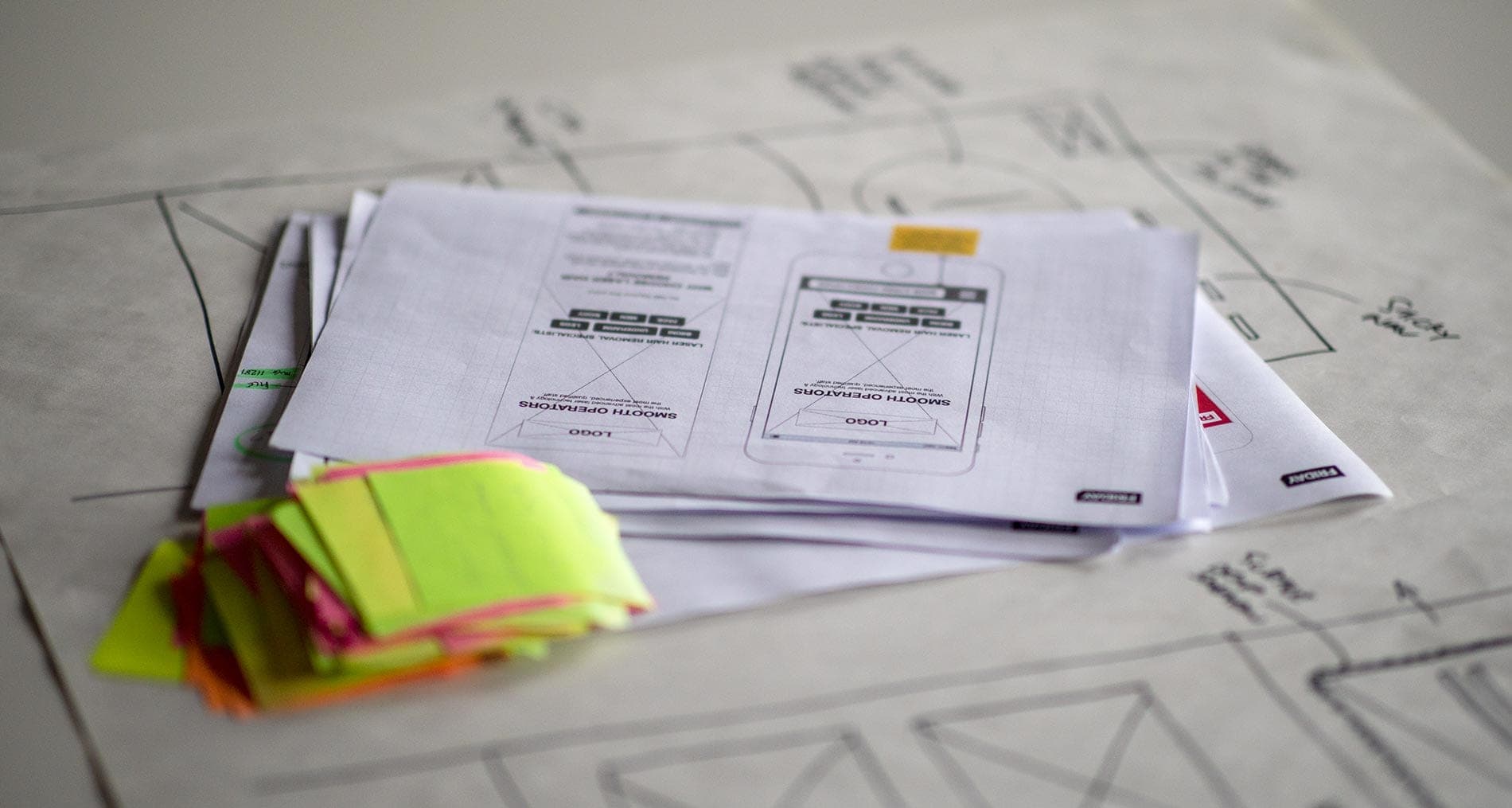Design is going through a resurgence of appreciation and as a design focused agency, this makes us very happy! We are finally reaching a time where the value of design is starting to be realised by the business mainstream and this allow us to work using a smarter process that clients now buy into.
Businesses from law firms and restaurants to grocery stores and banks are employing design in a way they never did before. The public are starting to demand it and business owners are starting to take notice.

In the past, design had been undervalued. It was seen by some as a luxury, and was usually reserved for the few who understood its business potential. Businesses focused on their product or service and not so much on their brand or customer experience. They still made a profit and probably didn’t realise the potential of employing design through the user journey both offline or online.
When design becomes a priority
Imagine there was a burst pipe in the head office of your business. This is an emergency, right? You call a plumber immediately, don’t question them and pay whatever it takes to fix the issue as quickly as possible. This is a no brainer.
So, if a business has poor branding, design and in turn a substandard customer experience, why is this not seen as an such a pressing issue? Why do some businesses cut corners on design, leave their websites out of date and lack attention to detail in all corners of their business activity?
“If you think good design is expensive, you should look at the costs of bad design.”
— Dr Ralf Dieter Speth
A business may still run and even make a profit without good design, if a business has never employed design thinking they will never know the added value it can bring.
I’m not saying you should throw money at design without questioning it, you need to be smart about what what your goals and objectives. Unlike a burst water pipe needing to be fixed, good design can be subjective. What may look ugly to one person, may look adequate to another or great to someone else. What is not as subjective is consistency of design application and this is where a lot of companies fall down.
A business can employ watered down design, maybe create a good brand/logo with brand guidelines and let the admin people apply the new branding across the company while probably ignoring the guidelines. Application of good design should always be managed by someone who has experience in and understands design. This is where a good agency comes into the mix.
Design led companies
In recent years design led companies have shown the world how design can enhance their brand, create loyalty and extract maximum potential from a product. Sometimes the product may not even be the best in terms of features but if its well designed with a focus on the detail of customer and user experience it can stand out from the competition. AirB&B is a good example, they sell experiences and have perfected the customer experience as much as they can along the way through design and careful attention to detail.
Since the 1970’s Apple has always been design-led, and this has come from the top down. Its a huge part of the company culture. From the days of Steve Jobs arrogant insistence on his vision being executed to the tiniest detail to today where Jonny Ive pretty much oversees all visual aspects of every Apple product in both software and hardware. Apple is now the biggest company in the world. You can be pretty sure there are few people working in Apple that do not have at least a basic appreciation of design.
Due to the remarkable success of design-led companies, design has evolved beyond products. Design thinking is at the core of effective company strategy. Companies are learning how to think like designers, and apply design principles to all areas of their business and its workings. The only way this can happen is if it comes from the top. If a MD or CEO does not use design thinking it will be very hard to create a design led company culture.
Research led User Experience
While user experience (UX) has been around since the dawn of time its only in recent years that it has come to the forefront of digital design and a new process is still evolving. We are a research driven agency and its part of our culture to have all design decisions qualified through research. Large companies are now insisting on research driven user experience work to be carried out on their websites, Apps and UI’s before final visual design starts.
“Like all forms of design, visual design is about problem solving, not about personal preference or unsupported opinion.”
— Bob Baxley
When it comes to design everyone has an opinion, who is to say which opinion is the right one? In some cases it can often seem to be the person in the room with the loudest voice or the person paying the bill. As rude as it may sound we have often had to tell clients that it doesn’t matter what they think. The only people that matter are the users, the customers. They are the ones using the product so they are the only voice that really matters. Its not us as the design agency or the client, we are not the target market. Ignoring user feedback is a huge mistake but listening to their views and needs can give valuable insights.

UX doesn’t have to be expensive or time consuming. With research there is nothing to debate, it creates proof and makes for quick decisions, meetings don’t turn into debates and the end product will always perform better.
“Design based on data brings us back to the essence of design and will leave out all unnecessary decoration.”
— Jeanne de Bont
This culture is slowly starting to trickle down to SME’s and budgets are slowly increasing to allow the design work to be done the right way using a comprehensive process.
Iterative design
Another great change in how the design process is changing is the iterative approach. We are coming to the end of the days where a product is created, the design work is done, its released everybody walks away and its left unchanged.

The process of ‘Research — Design — Test — Build’ should be a repeating cycle of continuous development. You’ll never get it 100% right the first time. Even if you do how will you know unless you do the research and testing.
Iterative design is in some respects starting to replace planning documentation. Iterative prototyping is a good route if you want your project to hit the ground running. Prototyping allows designers and developers to quickly transform their creative vision into a reality, and then perfect it through iterations. This approach can be a hard sell especially to clients who are used to the traditional waterfall way of working but it works and we have found that people quickly adjust and like working in this way. This approach can save clients time, money and resources. The process makes exploring what the user needs and how to get it to them generally much quicker than documentation.
The future is bright and good design is starting to get the recognition it deserves. Its refreshing to see clients demanding that design done the right way, using right the process. Designers have spent years trying to push this process and its starting to become expected. Long may it last, at the moment it does feel like there is no turning back.
What do you think? Let us know in the comments section below.


